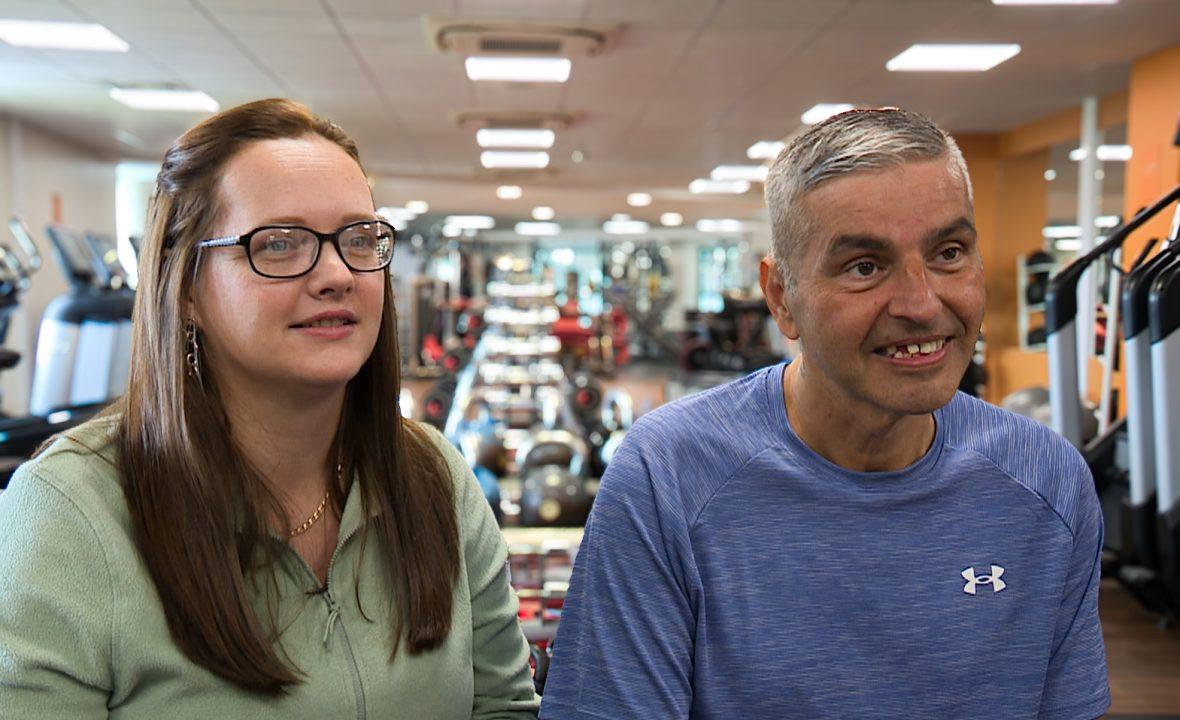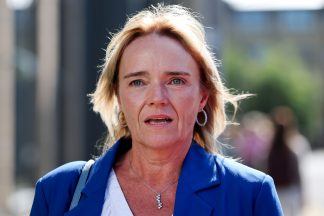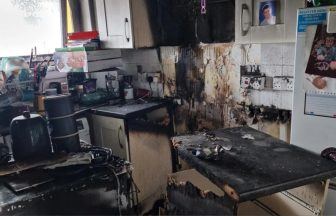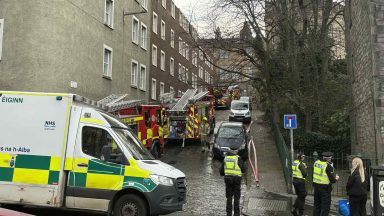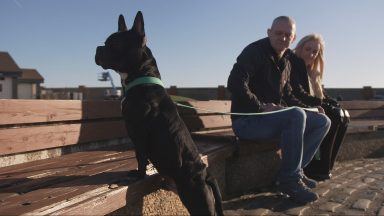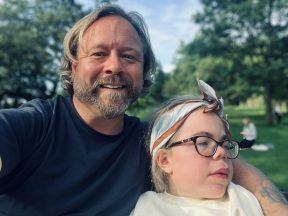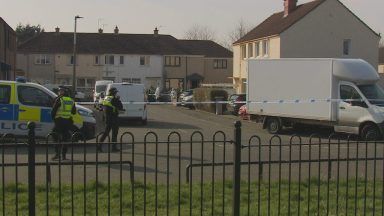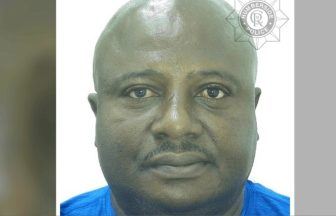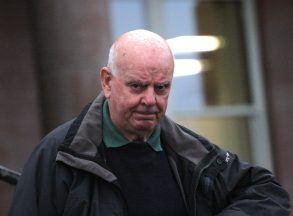An Edinburgh dad who almost died following a stroke and was then evicted from his home has made a remarkable recovery – and is now sharing his journey on TikTok.
Dad-of-five Duncan Kirkpatrick, 50, suffered a haemorrhagic stroke while watching TV late one night in December 2023.
His wife, Stacey, 38, called an ambulance and he was rushed to the hospital for emergency surgery.
“I just remember getting a headache, and I said to my wife, ‘My head’s really sore,’” said Duncan. “That’s all I can remember until January.”
“He went numb and couldn’t move”, Stacey explained.
“It was chaotic but really quick. We didn’t know if he was going to survive. It was not nice to see.
“He was already in a coma by that point. We were told they didn’t know he would recover.”
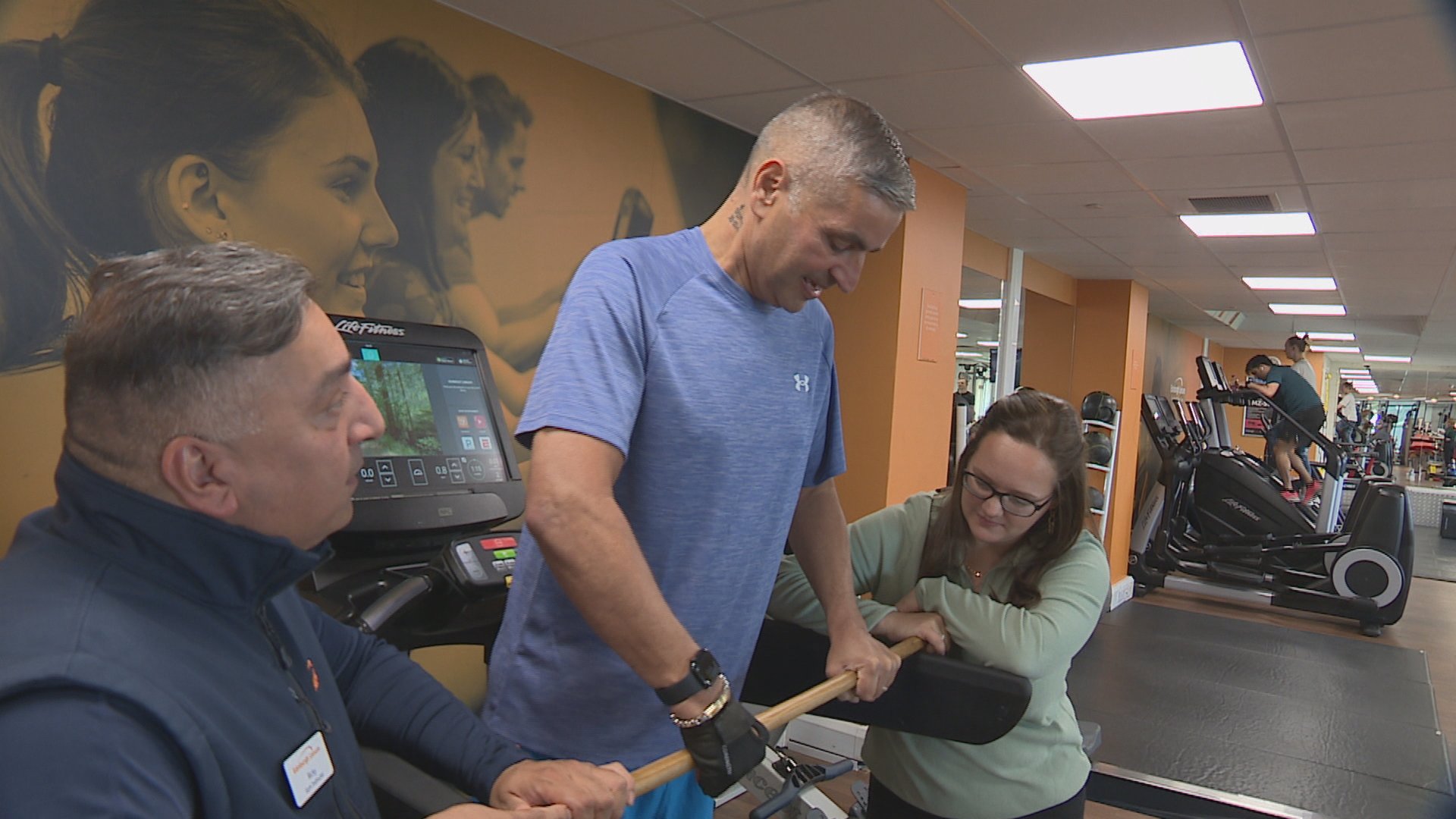 STV News
STV NewsAfter months of rehabilitation, Duncan has now begun walking again.
However, just four weeks after leaving the hospital, the family faced eviction from their rented home and were placed in temporary homeless accommodation. Duncan was also forced to give up his job as a painter and decorator.
“Duncan was devastated about losing his business. He’s worked since he was 14,” Stacey said.
“It felt like we lost everything overnight.”
The couple had received an eviction notice in summer 2023 for the home they had lived in for ten years.
Despite going through appeals and tribunals, the court ruled in the landlord’s favour.
Left with no option, they moved into a three-bedroom flat.
“We were evicted through no fault of our own,” Stacey said. “The landlord gave us notice six months earlier – he wanted to sell the house. We’d gone through all the appeals and tribunals, but in the end, we were told we had to leave.”
“We didn’t have the option to go private – there was no way we could afford it after his stroke.”
The challenges continued as Duncan recovered from his stroke.
In the temporary flat, Stacey and Duncan had to sleep in the living room so their three teenage children could each have their own room.
“Duncan struggled to get to the toilet during the night because we had to move the sofa for him to get there,” Stacey added.
Despite their difficult living conditions, Duncan threw himself into recovery with support from Stacey and trainers at Ainslie Park Leisure Centre
His right side was severely affected, leaving little feeling in his arm and leg, but he spent months relearning to walk, hoping one day to return to playing golf.
Stacey began documenting his progress online. “I actually started doing it in secret. He was sitting on his phone scrolling and said, ‘that’s me!’ and that’s when he realised I’d been secretly filming him. I saw other survivors on TikTok and I thought, why not record?”
Asked how he felt when he found out, Duncan said: “I liked it, it was good… I’m happy, anything that will benefit or help people.”
“I know other stroke survivors are trying it or asking for more help – and I love it.”
Trainer Ricky from Ainslie Park Leisure Centre said Duncan’s progress has been “amazing.”
“When I first met him, he couldn’t walk. He’s so dedicated now. I got him on a treadmill. Each time we came in every day, he moved to different machines. He has progressed really well each day.”
Stroke is the leading cause of adult disability in the UK.
Each year, around 13,000 people in Scotland have their first stroke. About 1,000 of these are under 55 years old, and approximately 100 are under 30, according to Chest, Heart & Stroke Scotland.
Stroke charities are warning that standards of care for survivors are falling across the country – and that this decline could cost the NHS billions in the years to come.
“What we need to make sure everyone gets is certain elements of care that mean the best chance of recovery,” said a spokesperson for the Stroke Association.
“Everyone leaves hospital with a plan for what happens next, a way of getting back in touch, a six-month review, how’s it going, what can we do – because every stroke is different.”
Public health minister Jenni Minto said: “We expect everyone who needs care to be able to access it and are continuing to work with NHS Boards to identify and improve aspects of stroke services which do not meet expected standards.
“Every NHS board now has an accountable person with responsibility for stroke care, to provide leadership for their stroke services, and we expect everyone who has had a stroke to be offered a formal review six months after it happens.
“Anyone suffering a stroke should also be given the option of a re-referral into stroke services, where required.”
Follow STV News on WhatsApp
Scan the QR code on your mobile device for all the latest news from around the country


